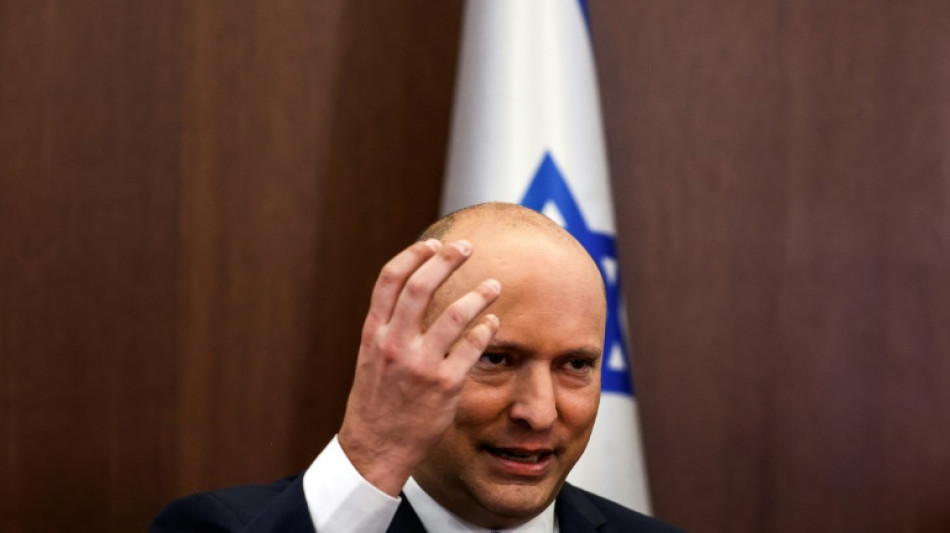
-
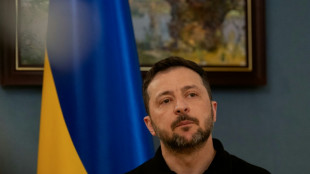 Zelensky says won't play Putin's 'games' with short truce
Zelensky says won't play Putin's 'games' with short truce
-
Cardinals meet ahead of papal election
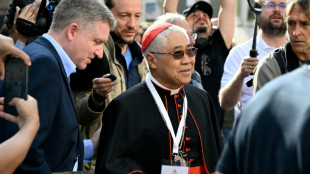
-
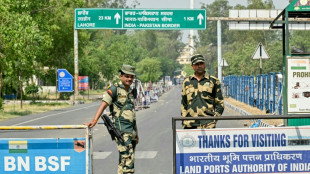 Pakistan tests missile weapons system amid India standoff
Pakistan tests missile weapons system amid India standoff
-
France charges 21 prison attack suspects

-
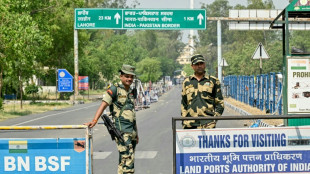 Pakistan military says conducts training launch of missile
Pakistan military says conducts training launch of missile
-
Lives on hold in India's border villages with Pakistan

-
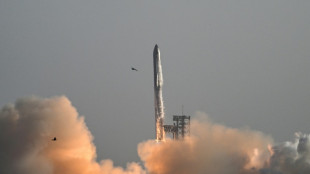 Musk's dreams for Starbase city in Texas hang on vote
Musk's dreams for Starbase city in Texas hang on vote
-
Rockets down Warriors to stay alive in NBA playoffs

-
 Garcia beaten by Romero in return from doping ban
Garcia beaten by Romero in return from doping ban
-
Inflation, hotel prices curtail Japanese 'Golden Week' travels

-
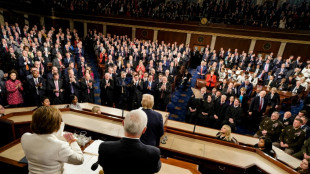 Trump's next 100 days: Now comes the hard part
Trump's next 100 days: Now comes the hard part
-
Mexican mega-port confronts Trump's tariff storm
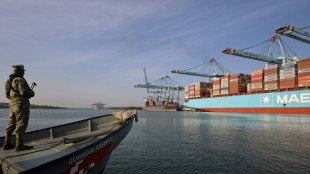
-
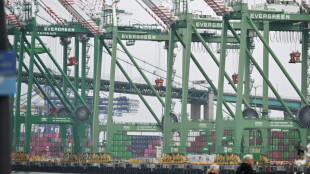 Trump's tariffs bite at quiet US ports
Trump's tariffs bite at quiet US ports
-
Ryu stretches lead at LPGA Black Desert Championship

-
 Singapore votes with new PM seeking strong mandate amid tariff turmoil
Singapore votes with new PM seeking strong mandate amid tariff turmoil
-
Five things to know about the Australian election
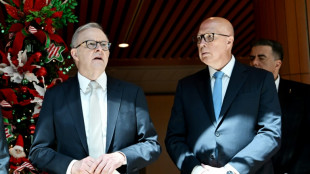
-
 Scheffler fires 63 despite long delay to lead CJ Cup Byron Nelson
Scheffler fires 63 despite long delay to lead CJ Cup Byron Nelson
-
GISEC Global 2025: Dubai Mobilises Global Cyber Defence Leaders to Combat AI-Driven Cybercrime and Ransomware

-
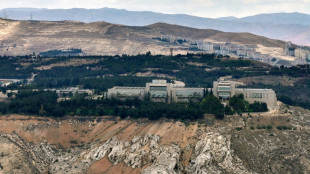 Israel launches new Syria strikes amid Druze tensions
Israel launches new Syria strikes amid Druze tensions
-
Finke grabs 400m medley victory over world record-holder Marchand

-
 Apple eases App Store rules under court pressure
Apple eases App Store rules under court pressure
-
Polls open in Australian vote swayed by inflation, Trump

-
 Russell clocks second fastest 100m hurdles in history at Miami meeting
Russell clocks second fastest 100m hurdles in history at Miami meeting
-
Germany move against far-right AfD sets off US quarrel

-
 Billionaire-owned Paris FC win promotion and prepare to take on PSG
Billionaire-owned Paris FC win promotion and prepare to take on PSG
-
Teenager Antonelli grabs pole for Miami sprint race

-
 Man City climb to third as De Bruyne sinks Wolves
Man City climb to third as De Bruyne sinks Wolves
-
Mercedes' Wolff backs Hamilton to come good with Ferrari
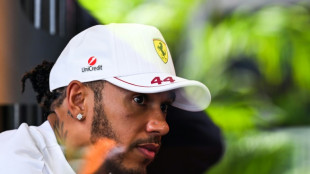
-
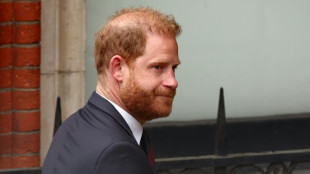 'Devastated' Prince Harry says no UK return but seeks reconciliation
'Devastated' Prince Harry says no UK return but seeks reconciliation
-
Elway agent death likely accidental: report

-
 Turkish Cypriots protest new rule allowing hijab in school
Turkish Cypriots protest new rule allowing hijab in school
-
Germany's AfD dealt blow with right-wing extremist label

-
 Trump NASA budget prioritizes Moon, Mars missions over research
Trump NASA budget prioritizes Moon, Mars missions over research
-
Hard-right romps through UK polls slapping aside main parties
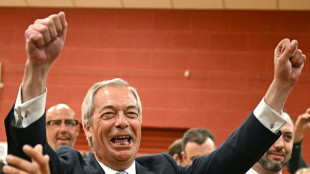
-
 Rangers hire two-time NHL champion Sullivan as coach
Rangers hire two-time NHL champion Sullivan as coach
-
Haaland on bench for Man City as striker returns ahead of schedule

-
 US designates two Haitian gangs as terror groups
US designates two Haitian gangs as terror groups
-
Lower profits at US oil giants amid fall in crude prices

-
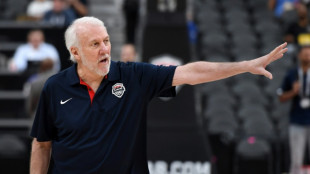 NBA icon Popovich stepping down as Spurs coach after 29 seasons
NBA icon Popovich stepping down as Spurs coach after 29 seasons
-
'Devastated' Prince Harry says no return to UK but seeks royal reconciliation
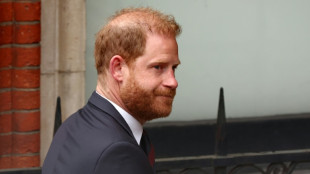
-
 Grande scratched from Kentucky Derby
Grande scratched from Kentucky Derby
-
Carney vows to transform Canada economy to withstand Trump
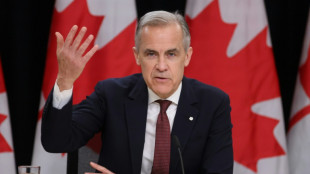
-
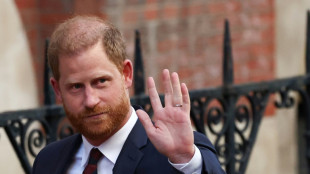 Prince Harry says he would 'love' to reconcile with family
Prince Harry says he would 'love' to reconcile with family
-
Major offshore quake causes tsunami scare in Chile, Argentina

-
 GM cuts shift at Canada plant over 'evolving trade environment'
GM cuts shift at Canada plant over 'evolving trade environment'
-
F1 extends deal to keep Miami GP until 2041

-
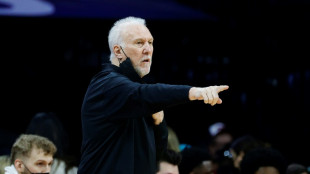 Popovich mixed toughness and spirit to make NBA history
Popovich mixed toughness and spirit to make NBA history
-
US asks judge to break up Google's ad tech business

-
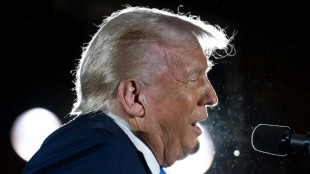 Trump eyes huge 'woke' cuts in budget blueprint
Trump eyes huge 'woke' cuts in budget blueprint
-
Ruud downs Cerundolo to book spot in Madrid Open final
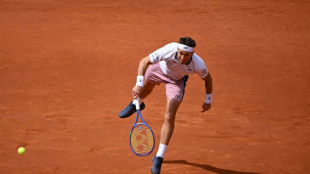

Israel's govt marks one year but future uncertain
Even Israeli Prime Minister Naftali Bennett, who leads an ideologically divided coalition perpetually facing collapse, has voiced doubts about the viability of his eight-party government.
"A year ago, I wasn't sure that it could be done," the religious-nationalist leader told AFP, 12 months after he ended the long reign of right-wing premier Benjamin Netanyahu.
Under the deal he struck with the coalition's architect, Foreign Minister Yair Lapid, the two are meant to trade posts halfway through their four-year term.
The first anniversary of their motley alliance falls next Monday, but some pundits say a second is highly unlikely. Others doubt it will survive until the end of the month.
Looming demise is nothing new for a coalition that spans the political spectrum from hard-line right-wingers like Bennett to centrists, doves and Arab Islamists.
The defection in April by a member of the premier's Yamina alliance stripped it of its majority in Israel's 120-seat parliament.
It even endured several days as a minority government after a left-wing Arab lawmaker bolted last month, but she then returned and the coalition now is hanging on with 60 seats.
The current crisis, rooted in one of Israel's most sensitive fault-lines, may however prove fatal.
- New threat -
Lawmakers from two coalition supporters, the United Arab List (Raam) and the dovish Meretz party, have refused to renew a measure ensuring Jewish settlers in the occupied West Bank are subject to Israeli law.
Any concession to the notion that the settlers are living outside Israel is anathema to other coalition partners, notably Yamina and the hawkish New Hope party led by Justice Minister Gideon Saar.
It remains uncertain whether the government will survive this dispute or what the next crisis may entail.
But in written responses to AFP's interview questions, Bennett argued the alliance had already proved its worth and shown the merit of compromise among rivals.
"After a year of actually running this government, my biggest realisation is that Israel is at its best when we work together, overcome our differences and focus on the good of this country," he wrote.
"What started out as a political accident turned into a purpose. It's working," he added, highlighting the November passage of a budget, Israel's first in three years.
"One year ago Israel was headed towards its fifth election in two years and was paralysed by polarisation," Bennett said, recalling the turbulence that marked the last years under Netanyahu.
"This government is the antidote to polarisation."
- 'No peace plan' -
Bennett, a hard-liner on the Palestinian conflict, was not previously known for a commitment to political inclusivity.
When the former head of a settler lobby first ran for office in 2012-2013, he drew attention for delivering nationalist messages with a modern twist.
"There are certain things that most of us understand will never happen," ran a campaign line. "The Sopranos are not coming back for another season... and there will never be a peace plan with the Palestinians."
Bennett has not changed ideologically: he opposes Palestinian statehood and affirmed there will be no peace talks during his tenure, while his government has approved new West Bank settler homes.
Bennett has said he instead wants to broaden economic opportunities for Palestinians, including through access to higher-wage Israeli jobs.
But some experts say Bennett's first year in charge has revealed that he was, in part, miscast as an unswerving hard-liner.
"He puts the interests of the state before the interests of the ideological camp that he represents," said Yedidia Stern, president of the Jewish People Policy Institute and law professor at Bar-Ilan University.
- 'Safeguarding democracy' -
Bennett's coalition was forged through a shared antipathy towards Netanyahu, who was in power from 1996 to 1999 and again from 2009 until June last year.
While many of Bennett's partners share Netanyahu's hawkish views, they broke with him over fears he was undermining state institutions to serve his personal ambition and to survive a trial on corruption charges, which he denies.
Many saw Netanyahu, a close ally of former US president Donald Trump, as fuelling right-wing populism and fostering conspiracy theories about malevolent judges, bureaucrats and journalists.
Ami Pedahzur, author of "The Triumph of Israel's Radical Right", argued that Bennett's government is made up of "institutionalists" who resisted the narrative of a "cabal or the deep state trying to take power from the people".
Left-right divisions were temporarily suppressed by a shared desire to "defend the institutions, for a while", said Pedahzur, an Israeli-born professor at the University of Texas at Austin.
Bennett, in a similar vein, praised his coalition for "safeguarding the integrity of Israel's democracy".
"It's not about making the left happy one day and the right happy another day," he wrote. "It's about listening to each other, hearing different perspectives and at times compromising."
Th.Berger--AMWN